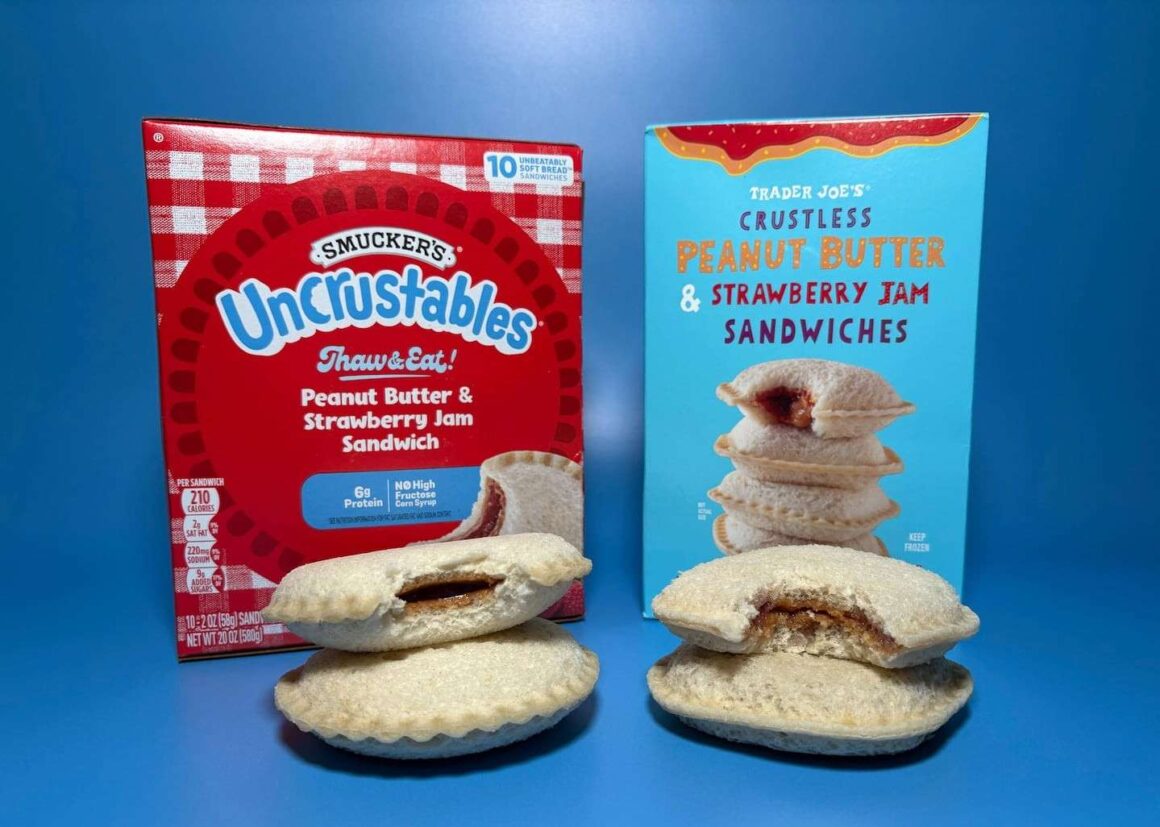J.M. Smucker Company has filed a lawsuit against Trader Joe’s. They’re claiming the grocery chain’s new frozen peanut butter and jelly sandwiches copy the look of its billion-dollar Uncrustables brand.
The lawsuit points to the sandwiches’ round shape, crimped edges, the light blue color used for the Uncrustables label and an image of a bitten sandwich as proof that Trader Joe’s crossed a line. Smucker’s even went as far to say that customers are confusing Trader Joe’s sandwiches for Uncrustables.
Visually, the two products aren’t even close. Smucker’s packaging features checkered squares that change color with each flavor. Red for strawberry, purple for grape, brown for chocolate hazelnut. Trader Joe’s box is a minimalist light blue box with a stack of frozen sandwiches, with the one on the top bitten open. Even if the shades of blue used are similar, it’s not enough to file a frigging lawsuit over it.
Smucker’s lawsuit isn’t about protecting intellectual property. It’s about maintaining a monopoly on a certain kind of food.
What Counts as Copying?
Smucker’s does hold registered trademarks on the round pie-shape, crimped edges, as well as certain design elements of Uncrustables’ packaging. That gives it some ground to stand on, but a trademark doesn’t make every similar idea illegal. This is true when those design choices serve a functional purpose.
Crimped edges keep the sandwich sealed. A round shape is just efficient. These aren’t brand signatures; they’re practical solutions. Trader Joe’s could argue that no company should be able to claim ownership of basic geometry or a sandwich seam.
When Lawsuits Go After the Competition
Smucker’s says they have spent two decades building Uncrustables into a household staple. The company now makes around 1.5 billion sandwiches a year. Smucker’s suing over a frozen sandwich may sound absurd, but it’s not an isolated case.
Trademark law was originally created to prevent deception. Now it’s being used to suppress competition. The food industry has seen a wave of these cases. Danone sues Chobani over coffee branding. Mondelez is going after Aldi for cookie packaging. Now Smucker’s is trying to claim ownership of a crustless circle.
Now we’re seeing this strategy play out in other industries. I mean look at what Nintendo is doing to Pocketpair over the success of Palworld. Or Lululemon going after Costco over simple leggings designs.
The legal language always sounds the same: “protecting our brand,” “avoiding consumer confusion,” “maintaining quality.”
Behind those phrases is the fear of losing control. In a market where imitation brands are popping up, bigger companies are turning to the courts to keep their place.
Smucker’s wants to get rid of Trader Joe’s sandwiches. They want to be the only brand selling overpriced crustless sandwiches that anyone can make at home. When corporations worth billions start fighting over the trademark rights of a sandwich, that shows how fragile their dominance really is.






